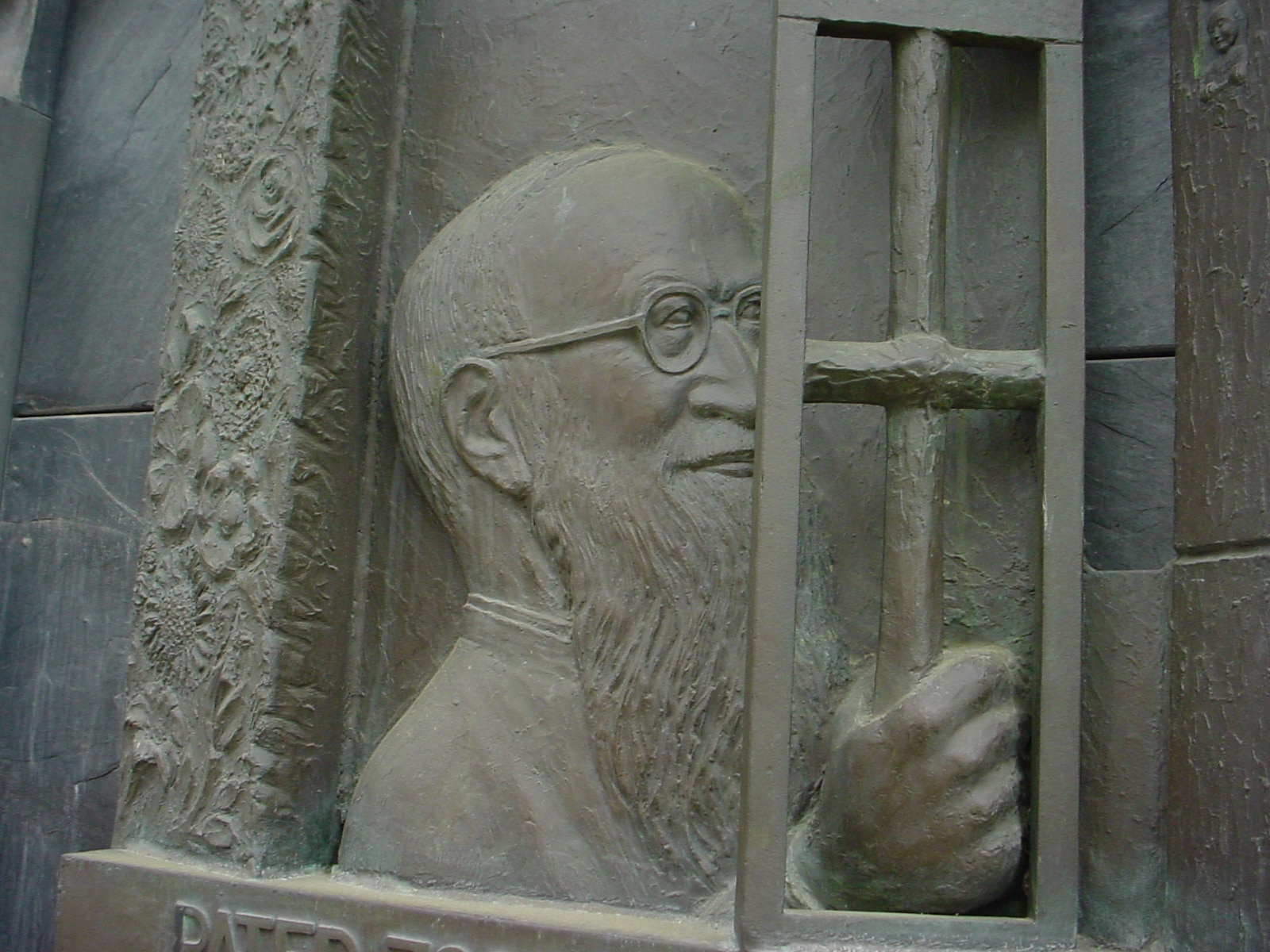January 20 is an important day for the Schoenstatt Family. We remember our Father and Founder’s decision to freely accept being sent to the concentration camp of Dachau without trying to appeal his conviction.
What did Father Kentenich experience in the days leading up to January 20?
In October 1941, Schoenstatt’s founder was taken prisoner by the Gestapo, the Nazi police, in Koblenz, a town on the Rhine River near Schoenstatt. The prison was housed in the building of a former Carmelite convent. Thanks to two guards, who dared to clandestinely bring correspondence from Schoenstatt to Father Kentenich and vice versa, frequent contact was maintained between the Schoenstatt Family and its founder.
On January 13, 1942, the Gestapo interrogated Father Kentenich at length and threatened to send him to the Dachau concentration camp. In fact, this deportation was tantamount to a death sentence, since few survived the Nazi concentration camps. On January 16, Father Kentenich underwent a medical examination to determine whether he was fit to be sent to the camp. The examination was a mere formality; his lungs and heart were not examined. Despite his poor health (one lung was not functioning), he was declared fit for the concentration camp. The next day, Schoenstatt received a note in Father Kentenich’s handwriting: “I have just been examined for the concentration camp. Result: I am fit for the camp. But no one should worry about that.”
From that moment on, the Schoenstatt Family’s leaders began to pull every possible string to prevent Father Kentenich from being sent to Dachau. They got the prison doctor to agree to examine him again, provided Father Kentenich requested it in writing, and then perhaps he could declare him unfit for the camp.

Dilemma in the face of “God’s silence”.
Father Kentenich was faced with a crucial decision: should he sign this request or not? What did God want from him? “The uneasiness caused by this tension wouldn’t go away”, he would later say. “Those were terrible days. Inwardly I struggled and prayed. I had no visions, no dreams, not even special enlightenment. In the solitary struggle I relied only on simple faith in Providence. For countless hours I paced in my cell. I struggled and prayed and did not know what to do.
On the night of January 19-20 Father Kentenich held a prayer vigil. On the 20th, during Holy Mass, which he celebrated clandestinely every day in prison, precisely at the moment of the consecration, he experienced the inner certainty of what he should do: he should not seek liberation by human means, but by the total surrender of the Schoenstatt Family to God.
Thus, he affirmed: “From my heart I sacrifice my exterior freedom so that the Schoenstatt Family will never lack interior freedom”.
How can we follow Father Joseph Kentenich’s example in seeking God’s will, even when it leads us to choose the most difficult?
May Father Kentenich intercede before God for each of his spiritual children so that they may know how to follow in his footsteps.
Source: Schoenstatt Brasil
